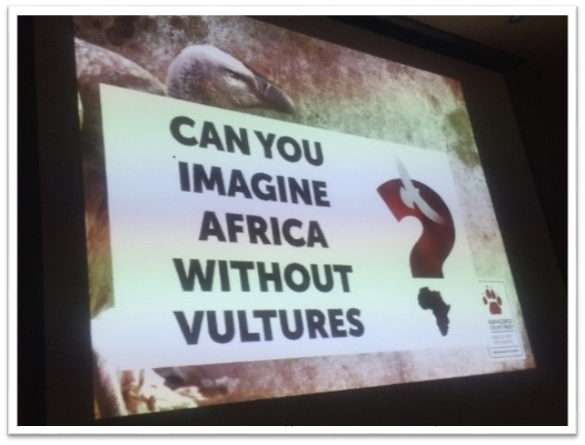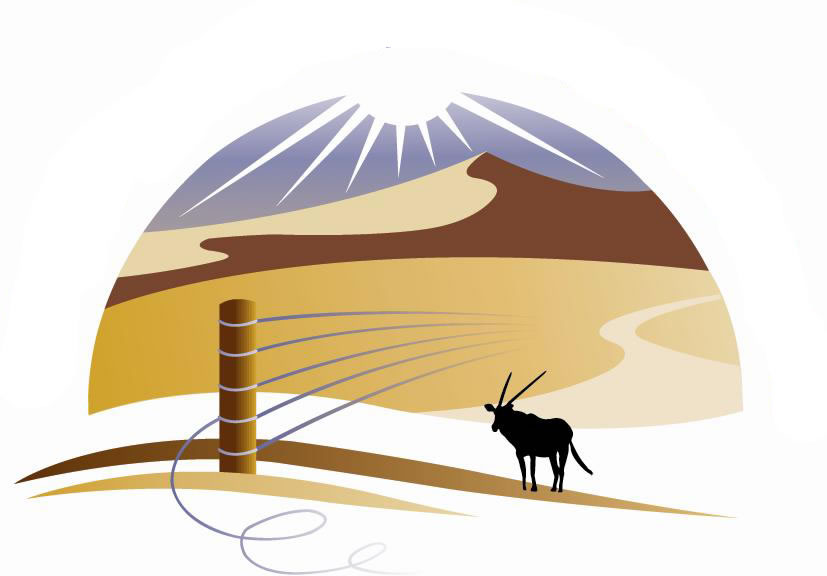Vulture Workshop held at Sossusvlei Lodge

On the 24th November 2017, a Vulture Workshop was held at Sossusvlei Lodge. Organised by the Greater Sossusvlei-Namib Landscape Association (GSNL), in response to a vulture poisoning incident in October 2017 where several lapped-faced vultures were poisoned by a local livestock farmer. This incident highlighted the fact that training was needed for local managers in order to collect samples from poisoned birds, collect evidence from a crime scene, initiate the appropriate law-enforcement response, safely rehabilitee a poison site and assist with the rehabilitation of surviving birds. Together with Liz Komen, of NARREC, we arranged an emergency workshop to educate and inform members of the landscape.
Andre Botha, Overarching Coordinator Multi-Species Action Plan to conserve African-Eurasian Vultures (Vulture MsAP), Co-chair: IUCN SSC Vulture Specialist Group and Special Projects Manager: Endangered Wildlife Trust from the Endangered Wildlife Trust, facilitated the workshop for us and made time in his full schedule to accommodate us. Andre has done these workshops and talks a number of times before – his knowledge of the statistics and his way of passing this on to a diverse group of people was inspiring. Apart from discussing some poison varieties and their effects and symptoms, we discussed reasons behind the poisonings and why these are becoming more common occurrences. The workshop was well attended, with some Ministry of Environment and Tourism personnel coming from as far as Aus, as well as the chair of the Suidelike Boere Vereeniging (SBV), Kokkie Prinsloo and his wife being there, and there were a number of landscape members present.
The course was very interesting and well presented, allowing for questions, conversations and a sharing of experiences. While it was a lot of theory to take in, we had limited time and the most important aspects needed to be covered, the theory gave a lot of insight and food for thought. One of the highlights was the information shared regarding investigating poisoning scenes. From this, we took the fact that an action plan needs to be in place for events when birds/animals are poisoned. In the near future we hope to establish such ‘task forces’ for the GSNL. The group will be equipped, as per Andre’s guidelines and advice, with relevant information to deal with poisoning scenes.
Another positive to have come from the meeting and the attendance of chairperson of SBV, was the possibility of a workshop being held in the Southern part of the country next year – involving the farmers' associations of the South. This would be a huge step forward and a great way of broadening the Vulture conservation network.
A sobering fact, which Andre really brought home to the audience was that without Vultures an ecosystem can collapse into itself. After the last poisoning incident, raising the police and our local MET personnel was a tedious and frustrating task. Hopefully the facts that Andre presented are enough to remind everybody of the importance of these birds and their job!
Part of the discussion went about the reasons why these killings are happening (as per the Workshop themes, see attached). In West Africa a number of the vulture varieties are locally extinct, this means that vultures are now being bought from other African countries into West African. The cultural beliefs are devastating these animals. The heads and feet of vultures are of immense financial value, as they are sold for Muhti (traditional medicine), allegedly allowing those who consume part of the head to gain clairvoyance, etc. Other reasons for their poisoning is Sentinel Killing, by poachers to avoid detection of high value carcasses and Agricultural (this is often accidental).
All this information was distressing, because the incredible hurdles we still face in Vulture conservation, however it was valuable and educational in raising awareness about the seriousness of the situation and the fact that without Vultures, the future of certain environments is incredibly uncertain.
We would like to thank Namibian Chamber of Environment and Chris Brown for their funding assistance, as well as Peter Keil, who flew Andre to the landscape in his personal time and capacity. A thank you t Sossusvlei Lodge, Karl-Heinz and Julie and their team, who set the venue and sponsored the venue or our use! A thanks to Liz Komen and Joris Komen, who did a lot of ground work in Windhoek for the workshop, and to Nils Odendaal and Murray Tindall for their ground support and assistance in the logistics.


